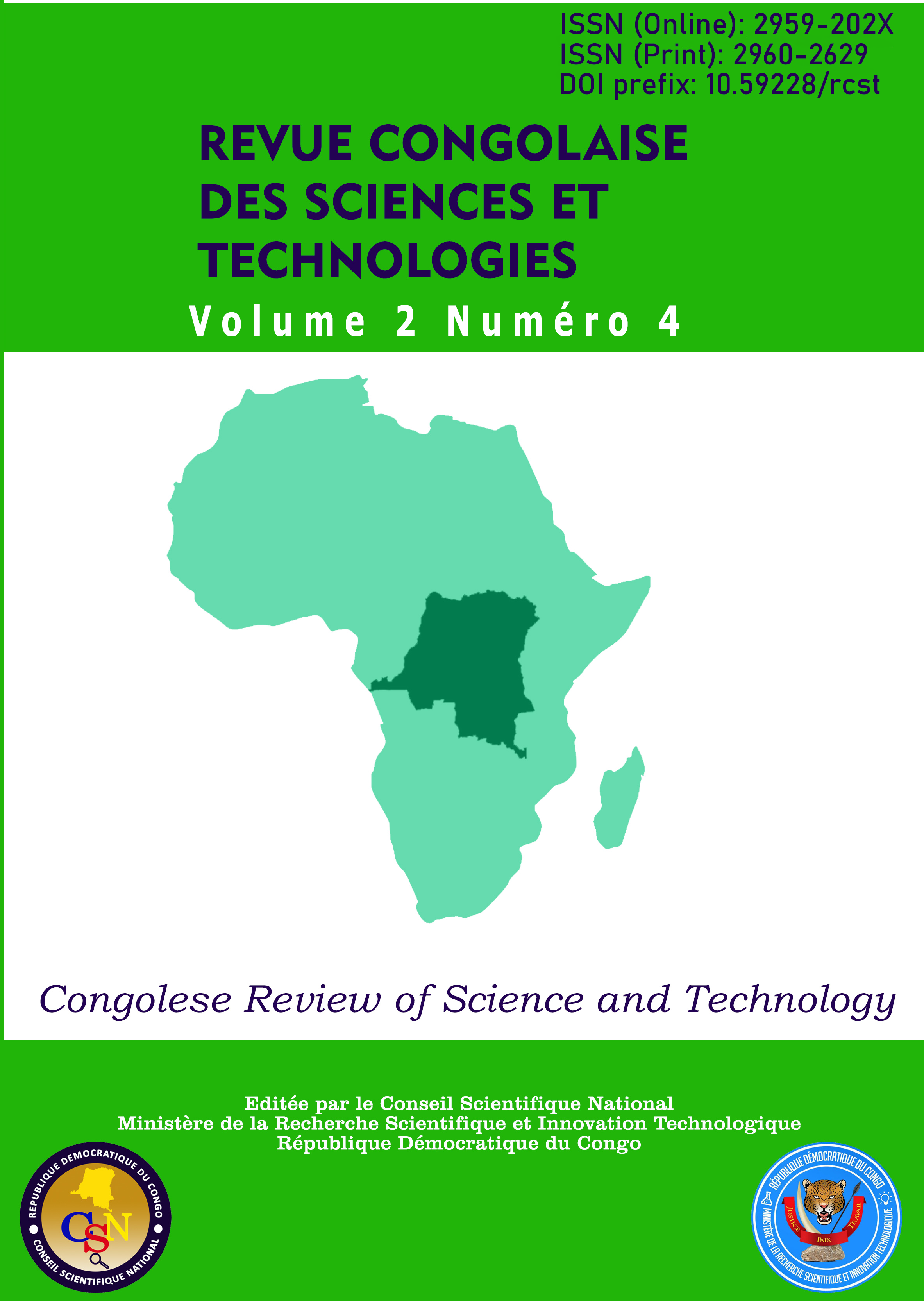Impacts of the “ambo-ambo” socio-cultural phenomenon on the sustainable development of the city of Inongo: Analysis of the crisis and possible solutions
Main Article Content
Abstract
In the town of Inongo, Maï-Ndombe Province in the Democratic Republic of Congo, the sociocultural phenomenon ―ambo-ambo‖ is in
vogue. Considering its current deployment in the socio-cultural environment, it risks harming the vision, culture and practice of sustainable
development in this environment. Hence, a socio-environmental field survey consisting of a representative sampling of 1558 subjects was
organized in the Municipality of Pongonzoli in order to understand and explain the essence, causes and consequences of the phenomenon.
Supported by direct and qualitative observation, documentary review, interviews and the systemic approach to the collection, processing and
analysis of data, the study was able to obtain the following major results: 87.5% of subjects recognize the existence of the ―ambo-ambo‖
phenomenon understood as ―a diplomacy of lies‖ (44% of subjects surveyed) stolen by users for ―courtesy‖ (55% of subjects surveyed). The
ethnic groups responsible for the phenomenon are essentially the Bolia (53.6% of the subjects surveyed) and the Ntomba (44.4% of the
subjects surveyed). Its diffusion occurs through ―borrowing‖ (52.2% of the subjects surveyed) from the original cultural cores. Its practice
responds to the ―imperatives of survival‖ (40% of subjects surveyed) to end poverty. Its consequences on a social, psychological, cultural and
ethical level are, among others: conflicts (43% of subjects surveyed); personality crisis (53% of subjects surveyed); intellectual hypocrisy
(46% of subjects surveyed), irresponsibility and cult of mediocrity (47% of subjects surveyed). To overcome the phenomenon and in order to
build together a culture of sustainable development, the study proposes the following: the reduction of extreme poverty, the improvement of
socio-environmental governance, the good management of public freedom for all, the fight against irresponsibility through legal sanctions
and anti-values.
Article Details

This work is licensed under a Creative Commons Attribution-NonCommercial-ShareAlike 4.0 International License.
References
Derrida, J. (1972). Marges de la philosophie. Paris,
Minuit.
Jonas, H. (1991). Le principe responsabilité. Ethique
pour une civilisation technologique. Paris,
Cerf.
Mala, A. (2021). Le retour de Zarathoustra. Paris,
L'Harmattan.
Morin, E. (2016, février). Le temps est venu de
changer de civilisation. La Tribune.
Mbaya, R. (1998). Aspects économiques et sociaux
de la rémunération du travail au Zaïre. Cas de
salariés de Kisangani. Afrique et
Développement, pp. 159 - 184.
Ordioni, N. (2011). Le concept de crise: un
paradigme explicatif obsolète? Une approche
sexospécifique. Mondes en Développement,
(154), 137 – 150.
Saka, F. (2023). Les paradoxes de la responsabilité
écologiques. Essai pour éthique durable du
développement durable [Thèse de Doctorat,
Département, UNISA].

